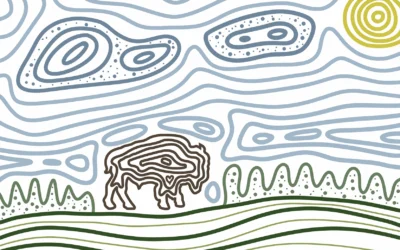When anticipating a new album, you develop a certain concern: “I hope the new songs are as good as the old ones.”
It would be a shame if they weren’t. You may not even recognize the artist anymore; the music might move in a direction that you can’t comprehend or appreciate.
Your fear comes true. You bang your head on the wall as you read reviews that fiercely protest the album.
Just like you, the reviewers cannot accept this change.
You wonder whether you should take a step back; after all, so many hidden artists have yet to be explored. But you cannot shake the memories you’ve made with the music.
Long before Abęl Tesfaye found himself a part of mainstream pop, his mixtapes were hidden gems. Prior to his mainstream albums, but still under the name The Weeknd, Tesfaye released Thursday, House of Balloons, and Echoes of Silence. Then came Trilogy, a compilation of what he had done so far, which received critical acclaim. Tesfaye epitomized the dark side that might be quietly confined in every human being, and he welcomed you in as long as you didn’t judge him like so many others had.
As you entered the world of his depravity, you saw him standing still, in contrast to the high-speed movements of the girls who touched him, kissed him and hurt him. His expression was numb, the smoke whirling from his mouth into the air. Tesfaye’s hypnotic voice portrayed what true melancholy is, and what it meant to him. For Tesfaye, true melancholy meant embracing pain and the regret, even if he could try to leave them behind instead. It seemed that he loathed himself so much that befriending hard emotions was the only way to make him feel alive.
His earlier lyrics appealed to you and made you quiver in silence. Knowing all his flaws, Tesfaye implied that love was too luxurious for him, his heart too damaged. He scoffed at the very notion of love. Yet he had loved, and he had known exactly how overwhelming it could be. And you wanted to sob for him, since he seemed too empty to cry, because his authentic sorrow resonated with you so perfectly.
In Tesfaye’s latest records, Kiss Land and Beauty Behind the Madness, he starts to slowly disclose the sentiment behind all the debauchery and destruction. He also begins to address his feelings for a particular girl. Tesfaye’s voice seems more relaxed and there is a hint of romance, especially in the track “Earned It.” The Weeknd is not private anymore. His profligate life is disseminated through the success of his latest albums. His old fans expected more painful narration from him, and seeing his shift from degradation to pop-decoration does not quite agree with those who loved his earlier work.
Older fans want more of that walking-dead Tesfaye who, bereft of hope and normality, suffocated, screamed and wheezed in forlorn silence, because that’s how you feel when your heart gets broken. Tesfaye lived that life with you. But now, as The Weeknd’s own life changes, his music changes too.
Still, you dwell on those memories. The thought of your beloved musician outgrowing you terrifies you. His former self has vanished, and that means that the part of you who resided with him vanishes, too.
His earlier music connected with you. But even if the newer music doesn’t speak as loudly, is it fair to say that your happiness weighs more than his? No. Because if you loved the artist, you’d respect what he’s going through, even if you loathe the new him. He lived that desolate life long before you joined him. Real artists paint the art for themselves; you came along because it spoke to you. You’re just along for the ride.
Photo by Nancy Hoang, Flickr Creative Commons.




0 Comments